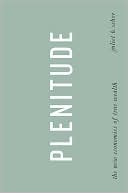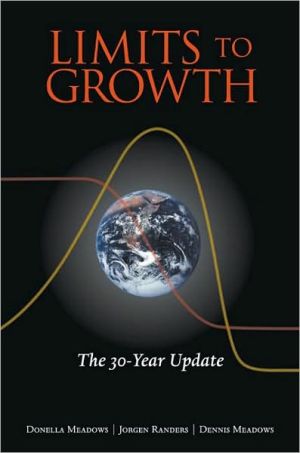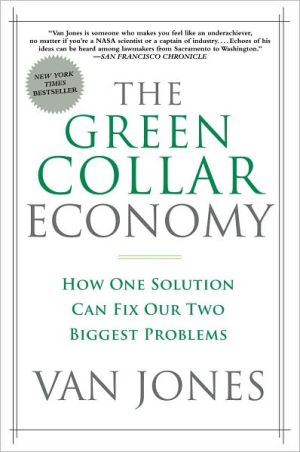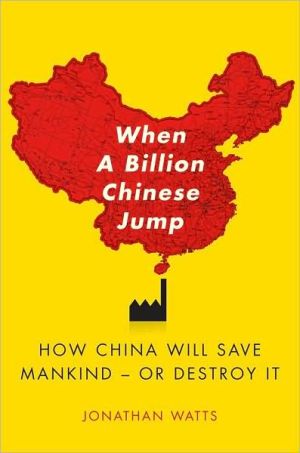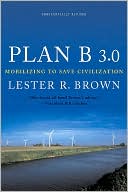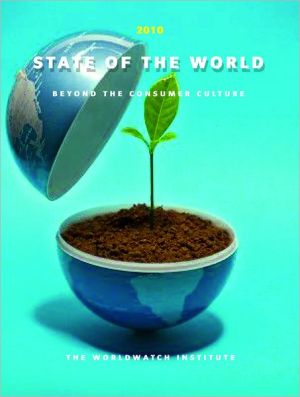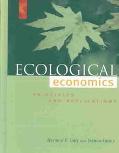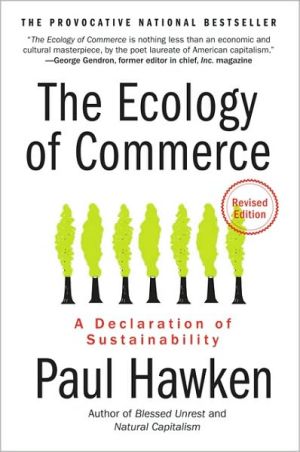Plan B: Rescuing a Planet under Stress and a Civilization in Trouble
A bold new plan for those concerned about rising temperatures, population projections, and spreading water scarcity.\ Lester Brown notes that if the environmental trends of recent decades continue, the global economy will soon begin to unravel. The food sector, he believes, is the most vulnerable. Record-high temperatures and falling water tables are already taking the edge off grain harvests in some countries, including China, the world's largest grain producer.\ The wake-up call will come,...
Search in google:
A bold new plan for those concerned about rising temperatures, population projections, and spreading water scarcity. Publishers Weekly Brown, founder of the Earth Policy Institute, believes that "we can build an economy that does not destroy its natural support systems, a global community where the basic needs of all the earth's people are satisfied, and a world that will allow us to think of ourselves as civilized." Brown (Eco-Economy) backs up his argument with clear and well-reasoned text that outlines how to solve the world's severe environmental problems. According to Brown, the earth's populations are currently living in a bubble economy based on reckless consumption of natural resources. Because of water shortages, soil erosion and rising temperatures, grain production has seriously fallen off. If this situation continues, especially in areas such as sub-Saharan Africa and the Indian subcontinent, hunger and disease will prevail and lead to disastrous consequences for the entire world. Drawing on careful research, Brown outlines the details of Plan B, a committed global cooperative effort to raise water and land productivity, cut carbon emissions and stabilize population growth before time runs out. He provides many individual success stories, such as the Netherlands' embrace of the bicycle for transportation instead of the environmentally poisonous automobile. Since 1989, Iran has cut its spiraling population growth through education and access to contraception. In this measured plea, Brown points out that for Plan B to be adopted worldwide, it desperately needs the leadership of the U.S., as the wealthiest nation on earth, to change its focus and resources from a military presence to one that fosters a global economy that will sustain generations to come. (Oct.) Copyright 2003 Reed Business Information.
AcknowledgmentsPreface1A Planet under Stress32Emerging Water Shortages233Eroding Soils and Shrinking Cropland424Rising Temperatures and Rising Seas595Our Socially Divided World806Plan A: Business as Usual937Raising Water Productivity1138Raising Land Productivity1319Cutting Carbon Emissions in Half15110Responding to the Social Challenge17611Plan B: Rising to the Challenge199Notes223Index273
\ Publishers WeeklyBrown, founder of the Earth Policy Institute, believes that "we can build an economy that does not destroy its natural support systems, a global community where the basic needs of all the earth's people are satisfied, and a world that will allow us to think of ourselves as civilized." Brown (Eco-Economy) backs up his argument with clear and well-reasoned text that outlines how to solve the world's severe environmental problems. According to Brown, the earth's populations are currently living in a bubble economy based on reckless consumption of natural resources. Because of water shortages, soil erosion and rising temperatures, grain production has seriously fallen off. If this situation continues, especially in areas such as sub-Saharan Africa and the Indian subcontinent, hunger and disease will prevail and lead to disastrous consequences for the entire world. Drawing on careful research, Brown outlines the details of Plan B, a committed global cooperative effort to raise water and land productivity, cut carbon emissions and stabilize population growth before time runs out. He provides many individual success stories, such as the Netherlands' embrace of the bicycle for transportation instead of the environmentally poisonous automobile. Since 1989, Iran has cut its spiraling population growth through education and access to contraception. In this measured plea, Brown points out that for Plan B to be adopted worldwide, it desperately needs the leadership of the U.S., as the wealthiest nation on earth, to change its focus and resources from a military presence to one that fosters a global economy that will sustain generations to come. (Oct.) Copyright 2003 Reed Business Information.\ \

